BROKER RISK MANAGEMENT
WEEKLY PRACTICE TIP
Recently, we have received several notifications from clients, and the California Department of Real Estate (“DRE”) has issued a warning, regarding a new scam involving real estate. In this scam, a “fraudster” will identify a property, generally, a vacant lot, second home, vacation home, or VRBO/AIRBNB. Generally, these properties do not have loans secured against them and are vacant. The “fraudster” will contact a real estate agent and represent that they are the owner of the property, and that they would like to sell it and ask the real estate agent to list the property. The “fraudster” will never actually meet the agent in person and will claim that they live out of town and potentially, out of the country.
The “fraudster” will have a notarized grant deed that has been recorded. The agent will then list the property and sell it. At close, the “fraudster” will have the proceeds from the sale wired to it.
Subsequently, the owner will learn that their property has been sold. That owner will generally file a lawsuit to quiet title (clear title) against the buyer. In these circumstances, it is anticipated that the buyer will file suit against the “fraudster,” title company, and real estate agents.
These criminals usually use several tactics designed to keep their crimes from being discovered until it’s too late. Some red flags:
- They typically target unencumbered property;
- Vacant land and empty residences are usually involved. Otherwise, the chances of the true owner finding out are much higher. This also applies to estate property where the property has not been properly transferred to heirs after the death of the owner;
- A new deed may have been recently recorded. This is an effort to erase the prior owner from the trail of communication and keep the “fraudster” from being found out;
- They demand a quick closing;
- In an effort to sell the property quickly, they price the property well under market;
- They will not meet in person, but all communication is online through email or text;
- If communication is by phone, the call will come through a burner phone;
- They will refuse to sign in person and will demand an e-notary insisting on their own personally chosen notary, or they will simply make the notary arrangements themselves;
- The closing will be a mail-out closing or remote/e-closing, even if the owner resides in the same area as the property;
- They demand a cash close; and
- The sales proceeds are distributed to a person who is not on title.
It is suggested that real estate agents exercise caution and use due diligence to verify the owner of a property before accepting a listing. Some tips for preventing this fraud include the following:
- Request an in-person or virtual meeting and ask to see proper government-issued identification;
- If a seller will not meet, immediately notify your manager, so steps can be taken to verify the person’s identity;
- Conduct an online search using the name of the property owner. Look for a phone number and a recent photo. If you find a number, contact that person and verify they are the actual owner;
- Send a copy of the electronically signed listing by overnight mail to the address on record with a request to confirm the listing’s accuracy. This will alert the legitimate owner of potential fraud;
- Require that the property owner provide a copy of a voided check with the seller’s disbursement authorization form;
- Contact the title company and request that it verify the identity of the seller; and
- Use a wire verification service or confirm wire instructions match the account details on the seller’s disbursement authorization form.
DO NOT FORWARD TO SELLERS OR BUYERS. This Weekly Practice Tip is for the exclusive use of clients of Broker Risk Management and their agents. It may not be reproduced or distributed without the express written consent of Broker Risk Management. The advice and recommendations contained herein are not necessarily indicative of standards of care in the industry, but rather are intended to suggest good risk management practices.
Copyright© Broker Risk Management 2023 07/28/23
